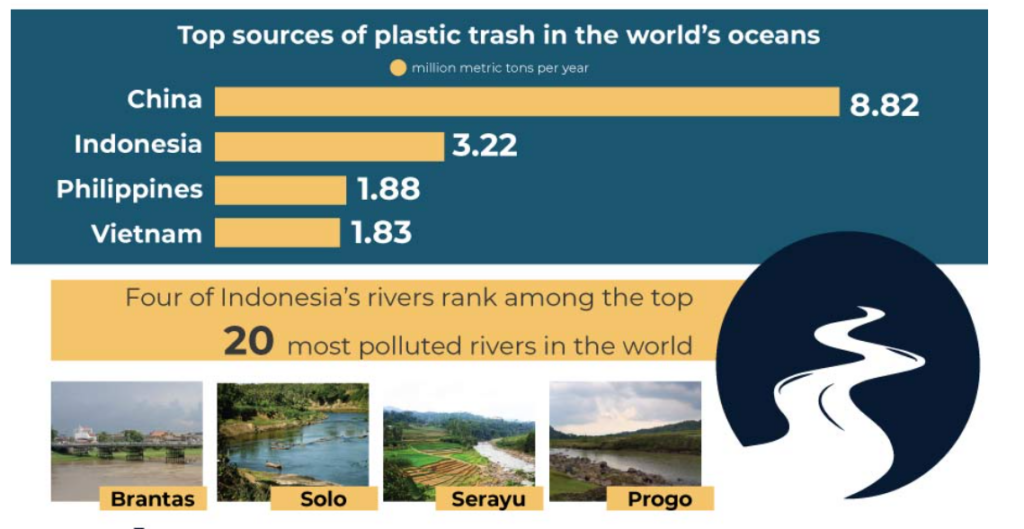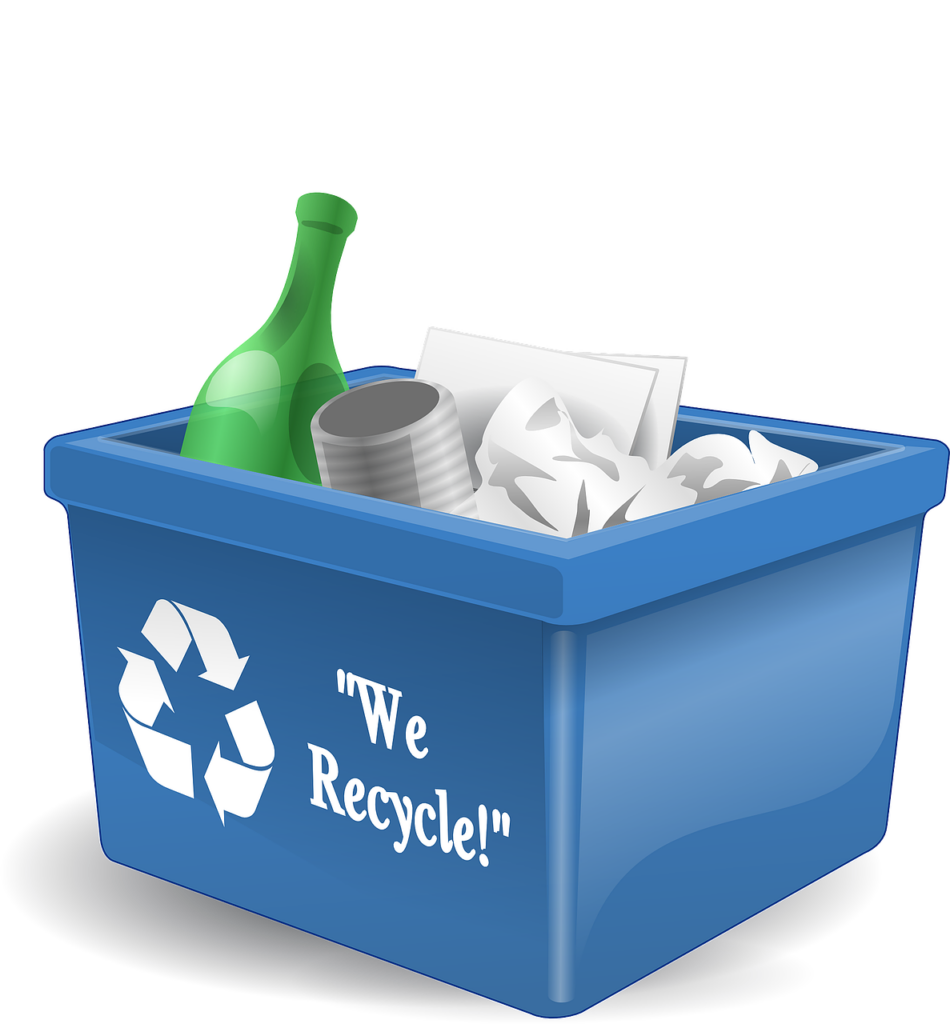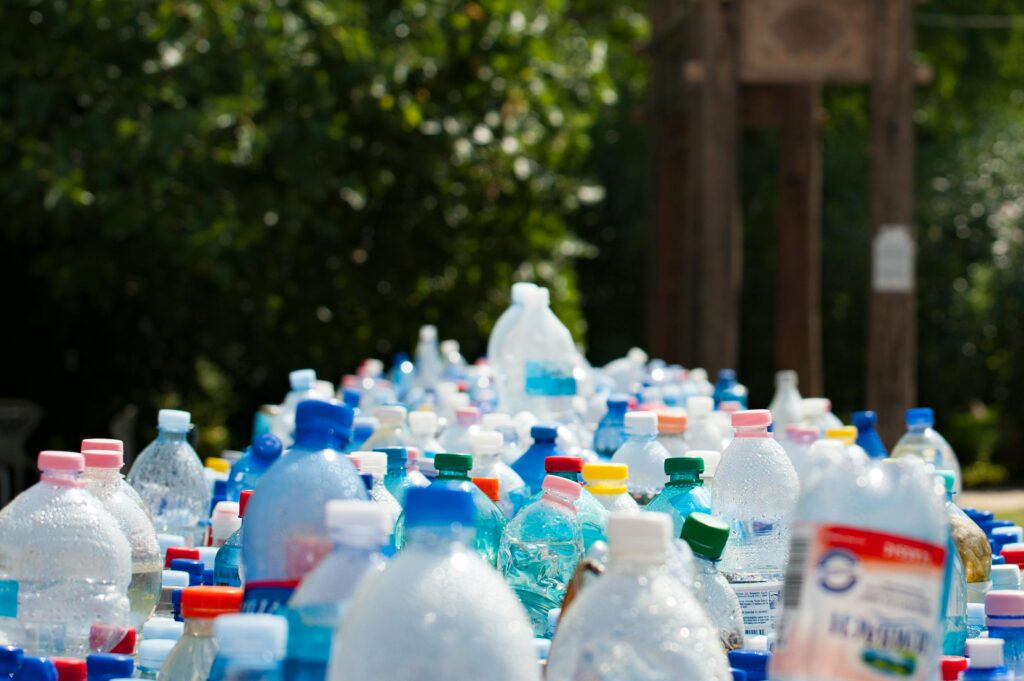By Happy Tarumadevyanto-
| EOS Communication Associate; CEO Environmental Asia |
A Brief Description of the Waste Management Challenge
Waste management in Indonesia faces significant challenges, including the increasing volume of waste, limited infrastructure, and low public awareness of recycling. Most waste still ends up in landfills, using open dumping or landfill methods. Government efforts include plastic waste reduction programs, establishing waste banks, and waste-to-energy initiatives. However, success depends on public participation, education, and support from technology and regulations. Moreover, collaboration between the government, private sector, and local communities is key to creating a more effective and sustainable waste management system for a cleaner and healthier environment.

Source: Various, https://theaseanpost.com/article/indonesias-plastic-waste-problem
Indonesia Challenge
Challenges like insufficient infrastructure, low public awareness, and high waste production, especially plastic. Efforts include government initiatives promoting recycling, community waste banks, and waste-to-energy programs. Public-private partnerships and grassroots movements are vital in addressing waste issues and fostering sustainable practices for a cleaner environment.
Several Creative Ways to Recycle Waste at Home
1. Plastic Water Bottles
Plastic water bottles are one of the worst indoor pollutants.
Plastic bottles are considered one of the worst indoor pollutants because:
- Non-biodegradable: Plastic takes hundreds of years to decompose, leading to waste accumulation.
- Toxic effects: Plastics exposed to heat can release harmful chemicals like BPA, which may contaminate indoor air.
- Improper disposal: Plastic bottles are often discarded carelessly indoors, creating an unclean and unhealthy environment.
- Increased microplastic pollution: Tiny plastic particles can contaminate water or food, posing health risks to humans.
Proper waste management is essential to reduce the environmental and health impacts of plastic waste.

Waste management in Indonesia faces challenges like insufficient infrastructure, low public awareness, and high waste production, especially plastic. Efforts include government initiatives promoting recycling, community waste banks, and waste-to-energy programs. Public-private partnerships and grassroots movements are vital in addressing waste issues and fostering sustainable practices for a cleaner environment.
1. Plastic Water Bottles
Plastic water bottles are one of the worst indoor pollutants. People often dispose of plastic bottles irresponsibly after use, causing significant harm to the environment.
Plastic bottles are considered one of the worst indoor pollutants because:
- Non-biodegradable: Plastic takes hundreds of years to decompose, leading to waste accumulation.
- Toxic effects: Plastics exposed to heat can release harmful chemicals like BPA, which may contaminate indoor air.
- Improper disposal: Plastic bottles are often discarded carelessly indoors, creating an unclean and unhealthy environment.
- Increased microplastic pollution: Tiny plastic particles can contaminate water or food, posing health risks to humans.
Proper waste management is essential to reduce the environmental and health impacts of plastic waste.
Utilizing Plastic Bottles
- Plant Pots: Use used plastic bottles as small plant pots or for hydroponics.
- Storage Containers: Turn plastic bottles into containers for storing small items like nails, buttons, or seeds.
- Handicrafts: Transform plastic bottles into decorations, hanging lamps, or creative toys.
- Plant Watering Tool: Modify plastic bottles into watering tools by puncturing the caps.
- Eco-Bricks: Fill plastic bottles with inorganic waste to create eco-friendly bricks.
- Rainwater Collectors: Combine several bottles to create a simple rainwater harvesting system.
With creativity, plastic bottles can be repurposed into useful items, reducing waste and supporting sustainability.
People often dispose of plastic bottles irresponsibly after use, causing significant environmental harm.


Leave a Reply